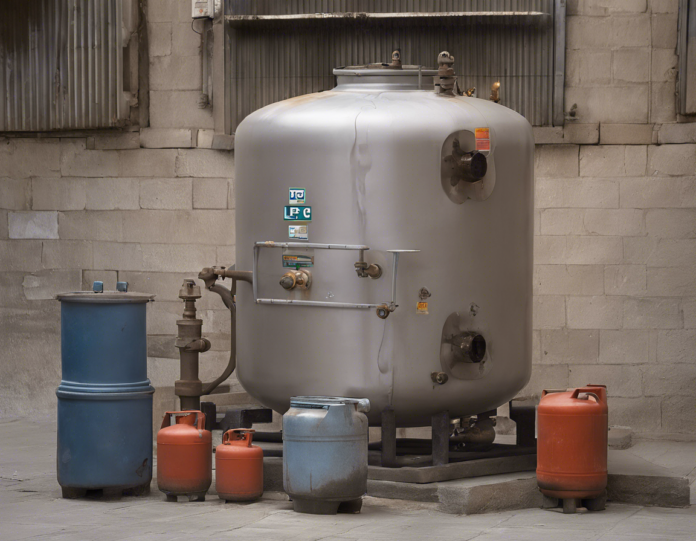Introduction
Liquefied Petroleum Gas (LPG) is a popular source of energy worldwide due to its versatility and efficiency. It is a mixture of hydrocarbon gases and primarily consists of propane and butane, along with small amounts of other gases like ethane, propylene, and butylene. LPG is widely used for heating, cooking, and transportation purposes. In this article, we will delve deeper to understand the composition, properties, uses, and safety measures associated with LPG.
Composition of LPG
-
Propane: Propane is a major component of LPG, known for its clean-burning properties and high energy content. It is commonly used for heating homes, cooking, and as a fuel for vehicles.
-
Butane: Butane is another significant component of LPG and is often used in portable stoves, lighters, and camping equipment due to its easy vaporization.
-
Other Hydrocarbons: LPG can also contain small amounts of ethane, propylene, butylene, and mixtures of these gases. These additional components can vary depending on the source and processing of the gas.
Physical Properties of LPG
-
Odorless: LPG is odorless in its natural state, but a pungent odorant is added for detection in case of leaks.
-
Flammable: LPG is highly flammable and can ignite easily, making it crucial to handle it with care.
-
Colorless: LPG is colorless, which can make it difficult to detect leaks without the added odorant.
-
Heavier than Air: LPG is heavier than air, meaning it can accumulate at ground level in poorly ventilated areas, leading to potential hazards.
Uses of LPG
-
Residential Use: LPG is commonly used for cooking, heating water, and space heating in households that are not connected to the natural gas grid.
-
Commercial Use: Many businesses use LPG for heating, cooking, drying processes, and as a fuel source for forklifts and other equipment.
-
Industrial Use: LPG is utilized in various industrial processes, including as a fuel for boilers, furnaces, and as a feedstock for the production of petrochemicals.
-
Automotive Use: LPG is used as an alternative fuel for vehicles, offering a cleaner and more environmentally friendly option compared to traditional gasoline or diesel.
Safety Measures for Handling LPG
-
Storage: LPG should be stored in well-ventilated areas away from ignition sources and should never be stored in basements or underground spaces.
-
Leak Detection: Install gas detectors and regularly check for leaks using soapy water or leak detection spray.
-
Proper Ventilation: Ensure proper ventilation in areas where LPG is being used to prevent the buildup of gas.
-
Regulator Maintenance: Regularly inspect and maintain regulators and hoses to prevent leaks and ensure proper gas flow.
-
Training: Anyone handling or using LPG should receive proper training on safe practices, including how to respond to leaks or emergencies.
Frequently Asked Questions (FAQs)
- Is LPG the same as natural gas?
-
No, LPG is a different gas mixture composed of propane and butane, whereas natural gas primarily contains methane.
-
Can I use LPG for heating my home?
-
Yes, LPG is commonly used for home heating systems, especially in areas where natural gas is not available.
-
Is LPG safe for indoor use?
-
LPG can be used indoors for cooking and heating with proper ventilation and safety measures in place to prevent leaks and ensure air quality.
-
How do I detect a gas leak in my LPG system?
-
You can detect gas leaks by smelling for the distinctive odor, using a gas detector, or conducting a soapy water test on connections to see if bubbles form.
-
Can LPG be used in vehicles?
-
Yes, LPG is used as an automotive fuel in many countries, offering a cleaner and more cost-effective alternative to traditional fuels.
-
Is it safe to transport LPG cylinders in a car?
-
It is recommended to transport LPG cylinders in a well-ventilated car with the valves closed and in an upright position to prevent leaks.
-
What should I do if I smell gas in my home?
-
If you smell gas, leave the area immediately, avoid using any sources of ignition, and call emergency services to report the leak.
-
Can LPG cylinders be stored outdoors?
-
LPG cylinders should be stored outdoors in a well-ventilated, shaded area away from heat sources, open flames, or ignition sources.
-
How can I ensure the safety of my LPG appliance?
-
Regular maintenance, proper installation by a qualified professional, and following the manufacturer’s guidelines for use are essential for the safety of LPG appliances.
-
What are the environmental benefits of using LPG?
- LPG produces fewer greenhouse gas emissions and air pollutants compared to other fossil fuels, making it a more environmentally friendly energy option.
Conclusion
LPG is a versatile and efficient energy source with a wide range of applications in residential, commercial, industrial, and automotive settings. Understanding the composition, properties, and safety measures associated with LPG is crucial for its safe handling and use. By following proper safety protocols, regular maintenance, and adhering to regulations, LPG can be a reliable and environmentally friendly energy solution for various needs.

